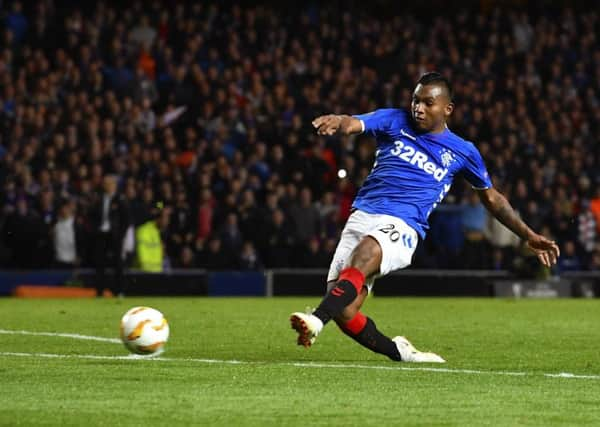Comment: Rangers' unbeaten run is great but also shows Scotland's fall


The victory over Rapid Vienna earned by captain James Tavernier’s thunderous late penalty – before Alfredo Morelos’s stoppage-time strike added gloss – certainly enhanced the Europa League prospects for Steven Gerrard’s men.
But it was also a resounding moment as the win moved Rangers closer to an all-time European high for the club.
Advertisement
Hide AdAdvertisement
Hide AdThe current side have now racked up ten straight games without defeat in Europe for only the third time since they started competing in the arena in 1956.
That said, never before has such a run had the possibility of being so modest in the overall grand scheme of things for Rangers – which is not in any way to downplay the efforts of Gerrard’s men in taking their unbeaten run into double figures.
It is a truly commendable feat that has taken them through four Europa League qualifying rounds and seen them withstand intense pressure in Spain, Russia and Croatia – countries where Scottish clubs rarely emerge with anything but their tails between their legs.
They are now within three games of tying the longest European sequences without loss that the Ibrox club have enjoyed in more than half a century.
However, this season, that simply demonstrates how many extra games Scottish clubs must wade through merely to make any sort of mark in the continental tournaments.
Between October 2005 and February 2007, Rangers enjoyed a 12-game unbeaten run in continental competition, a period that covered two different European campaigns. In 2005-06, their ability to scrape draws took them all the way to the last 16 of the Champions League under Alex McLeish.
The following season, in the group format of the old Uefa Cup, the Ibrox side, led by Paul le Guen, found continental competition far more to their liking than the domestic scene as they ran out worthy winners of their section.
Prior to that era, the best such European run for Rangers was a 12-match span underpinned by Rangers’ unbeaten campaign in the inaugural Champions League of 1992-93. That remarkable effort took a team managed by Walter Smith, pictured, to within a victory of the final itself.
Advertisement
Hide AdAdvertisement
Hide AdIt is a measure of how far the standing of Scottish football has fallen and the consequent poor European co-efficient, that Gerrard’s current side are being mentioned in the same breath as those previous Ibrox sides of such pedigree yet are not even guaranteed to progress beyond the group stages in the second-string Uefa tournament.
There seemed a presumption that, following the 2-2 draw eked out away to Villarreal in their first Group G encounter, that Rapid Vienna would be swept aside at an Ibrox pumped up about bearing witness to European group-stage football for the first time since 2010.
Confidence in such a outcome was drawn from the struggles that the Austrians had endured in their domestic league. Rangers, of all teams, ought not to have paid too much heed to that form guide.
For, in vanquishing Vienna only days after losing to Livingston, Rangers demonstrated that what happens on the home front need not have any relevance to European fortunes.
Such vagaries are making the Gerrard era a curious and thrilling ride.